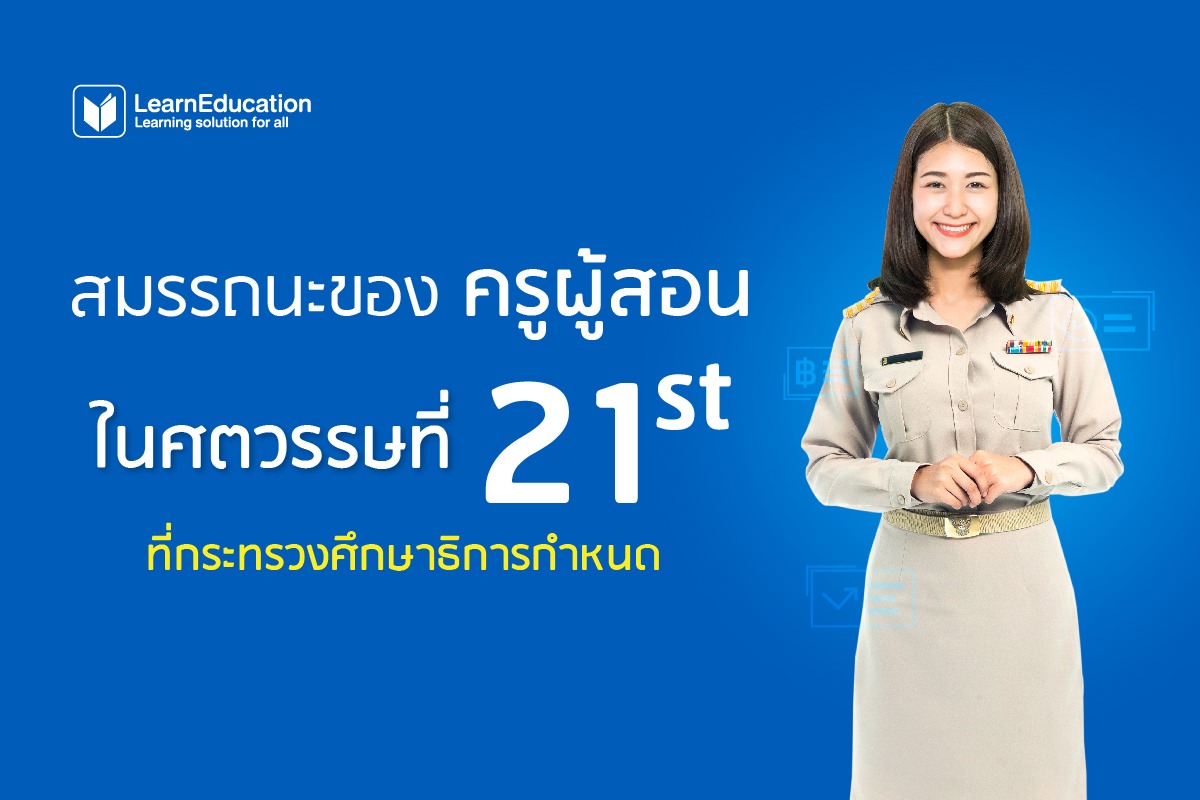
There are five core competencies as follows:
Focusing on goal achievements, providing excellent services, developing oneself, being a team player, and morals and ethics of teaching profession
There are six functional competencies as follows:
– Curriculum and learning management
– Student development
– Classroom organization
– Analysis, synthesis, and research for student development
– Leadership
– Building a relationship and cooperation with communities
In the age of information and technology with various kinds of information, teachers need to be equipped with essential skills called C-Teacher (Thanomporn Laohajaratsang) as follows:
Content: Teachers need to be well-versed in the subject they teach because unskilled teachers will be unable to help students achieve their goals.
Computer (ICT) Integration: Teachers require technology skills in learning management because implementing technology into learning activities will help stimulate students’ interest and greatly improve the skills they need, especially if the activities are effectively designed.
Constructionist: Teachers must understand a concept that students can acquire knowledge on their own by linking their previous knowledge with new experience and knowledge, and by participating in various practical activities. Teachers can use this notion to plan learning activities so that students can have the opportunity to acquire knowledge and produce various creative works by applying knowledge and experiences gained from classrooms and self-learning.
Connectivity: Teachers must be able to organize activities that involve collaboration among students, students and a teacher, teachers in the same or different educational institution, educational institutions, and an educational institution and a community, to create a learning environment that provides direct experience for students.
Collaboration: Teachers play an important role in organizing learning activities that involve collaboration among students and between students and a teacher to practice skills associated with teamwork, self-learning and exchanging information and opinion, all of which play an integral role in the development of students’ lives and careers.
Communication: Teachers are required to have several communication skills in giving a lecture, providing examples, choosing and presenting media and creating an environment that promotes learning. All of these skills are vital to teaching students properly, which will help them understand and achieve their goals.
Creativity: Teachers must be more than just direct instructors. Teachers in the 21st century must be creative in holding a variety of unique classroom activities and creating an environment that promotes self-studying as much as possible.
Caring: Teachers must be compassionate about and show genuine affection and care for their students to build trust in them, which will influence their state of learning by calming their minds. A relaxed mind is a happy state for students and the best time for them to learn.
Source: kruvoice.com